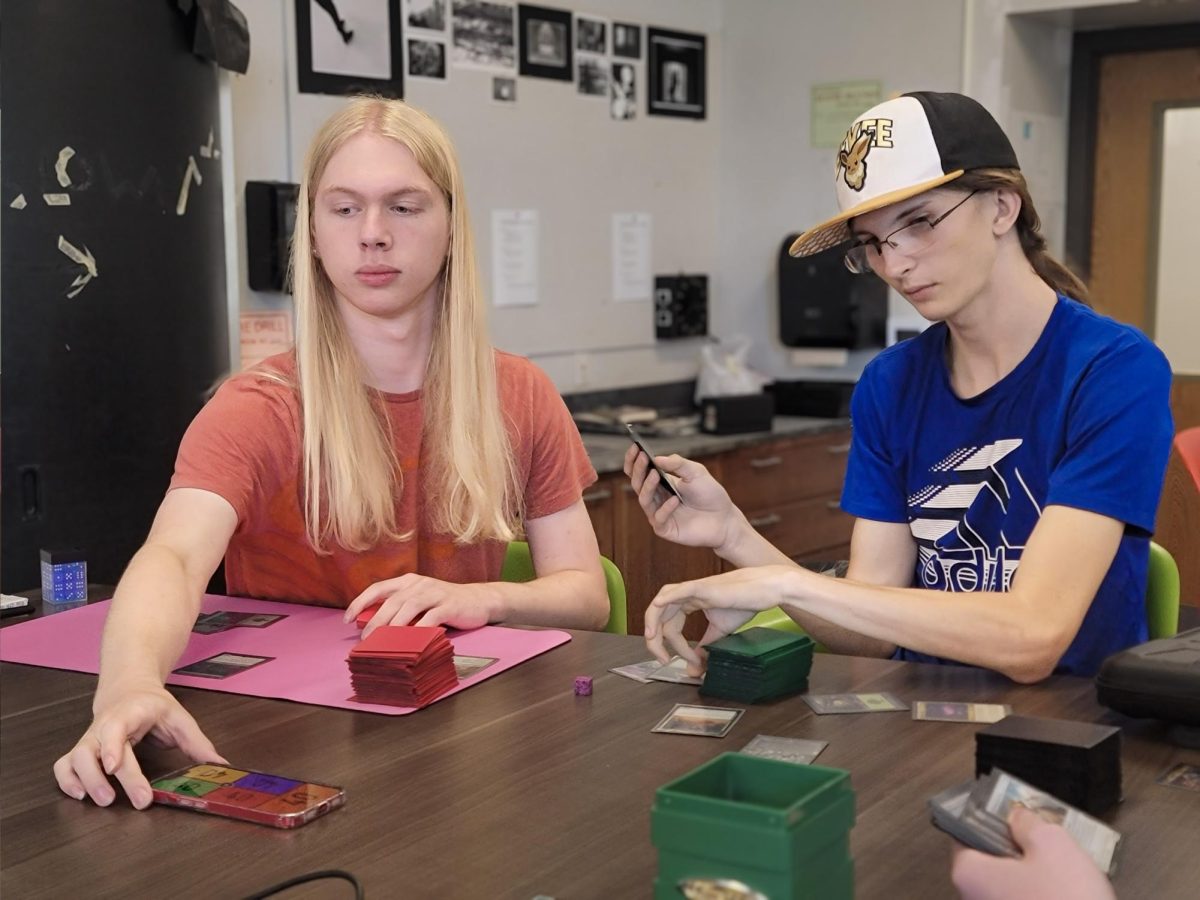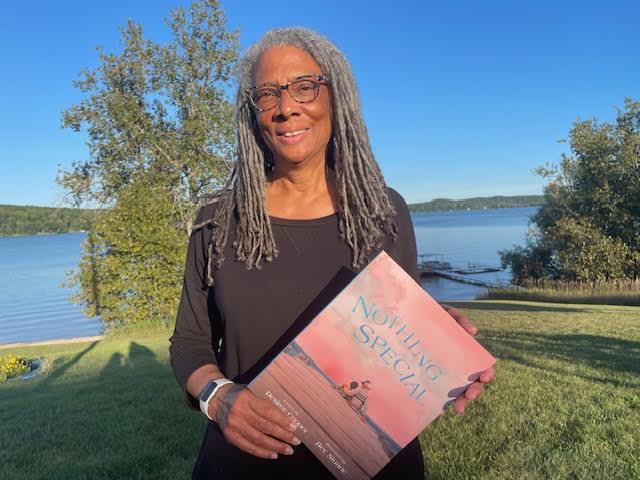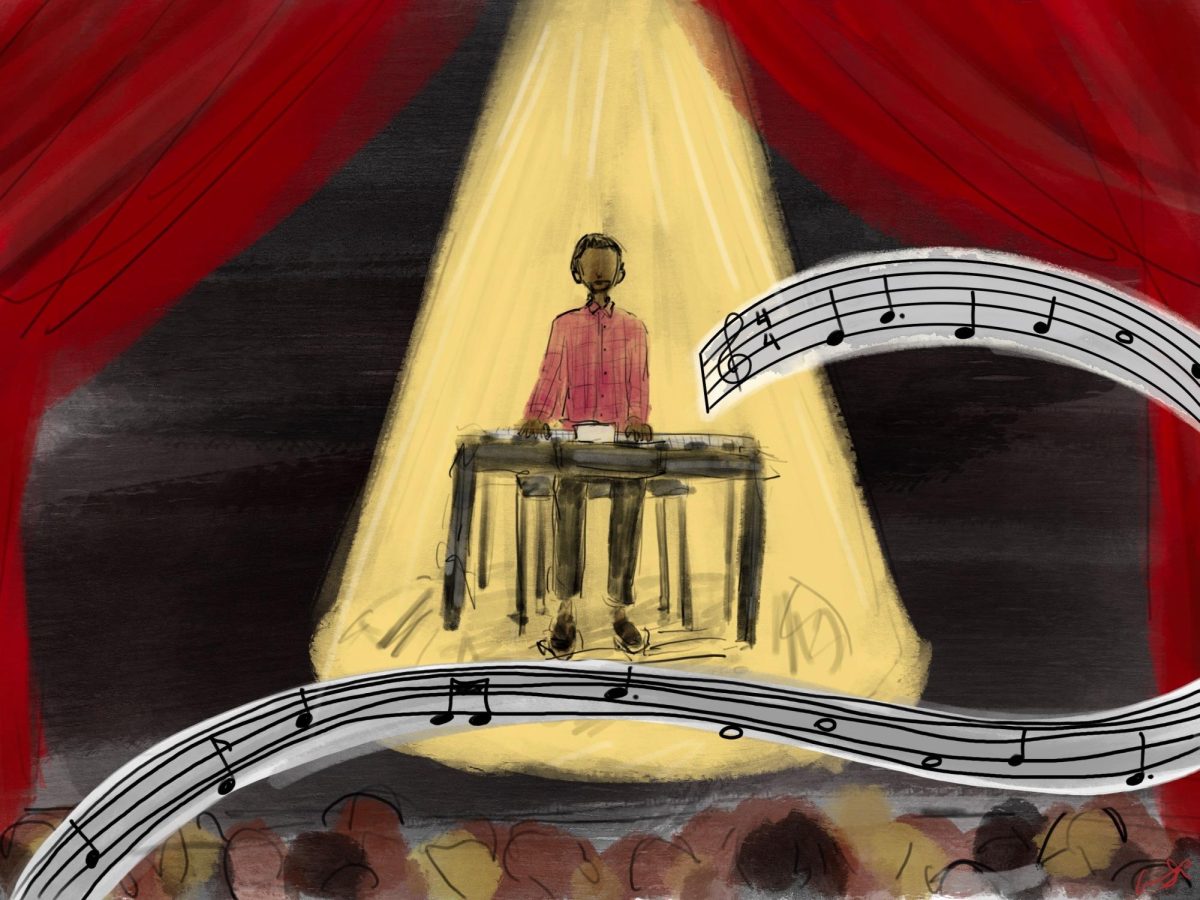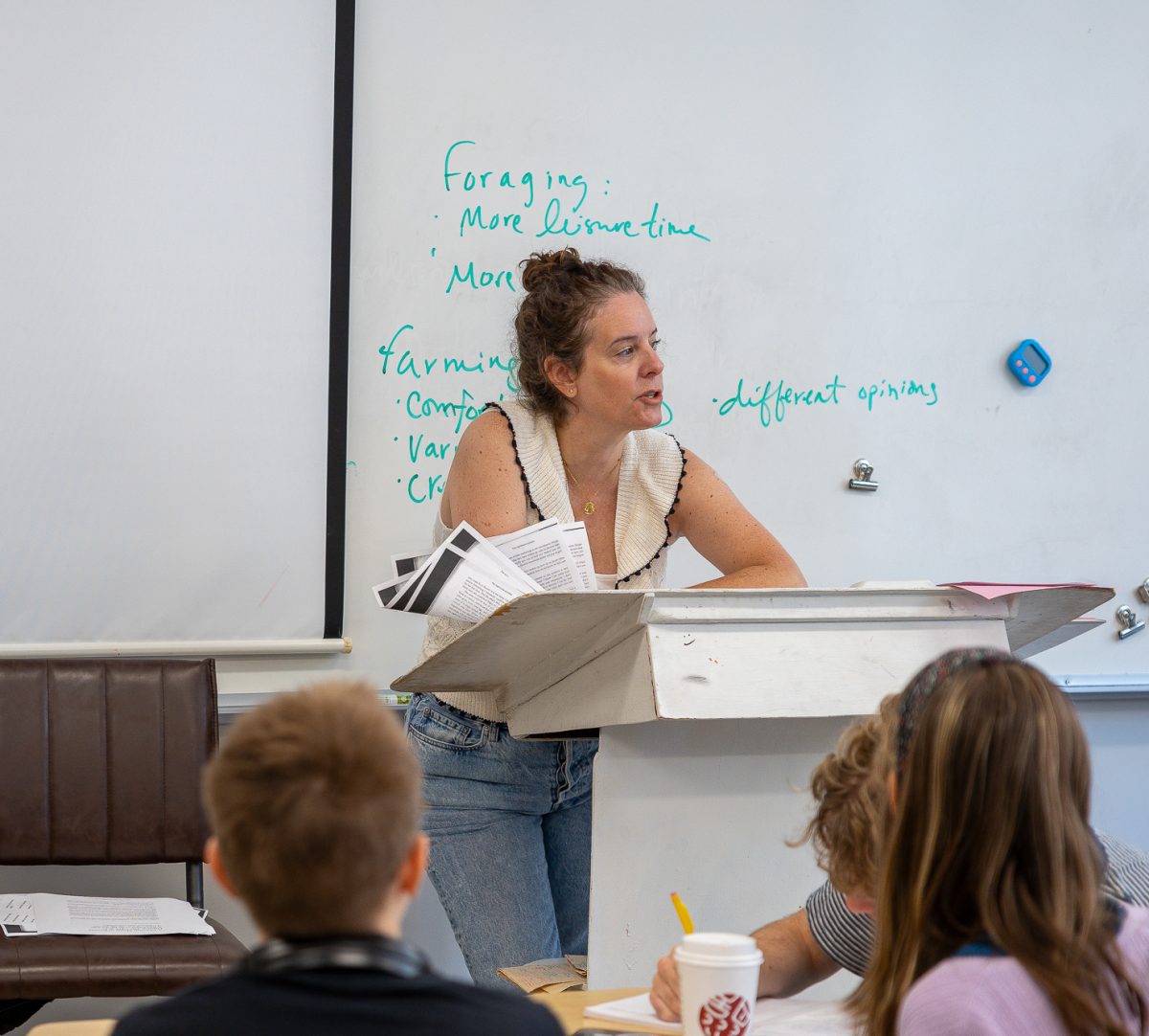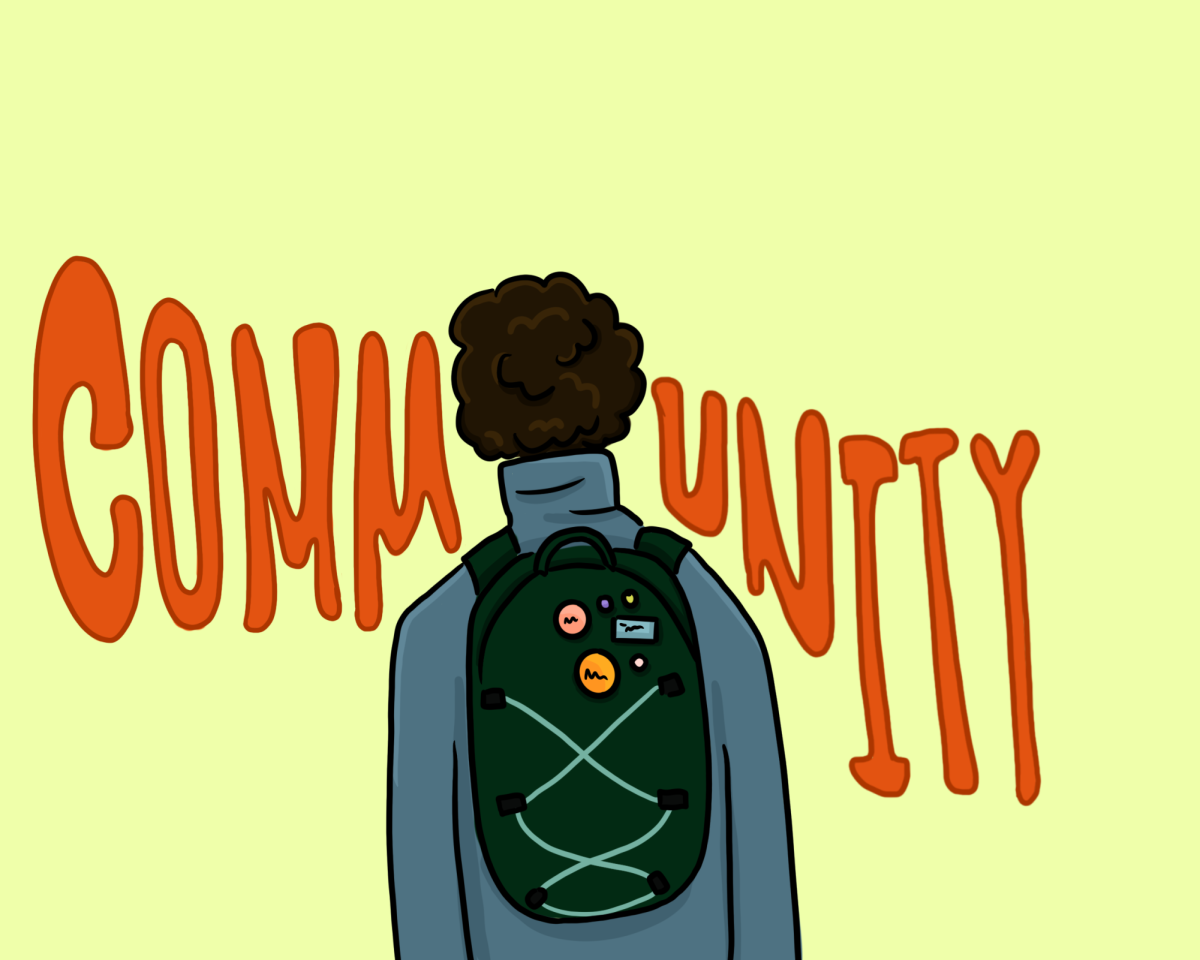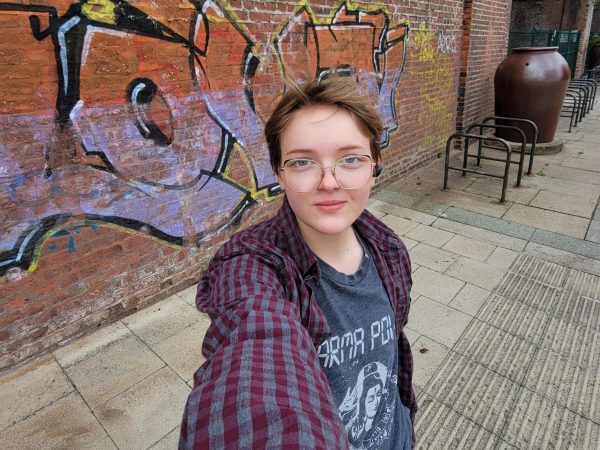The afternoon sun shines through the tall windows of the engineering and design room, casting shadows across a square table where five students huddle over carefully arranged cards. Between bites of lunch and strategy discussion, they’re deep in a world where graveyard spells clash with creatures, and friendship matters more than winning. At Community’s Magic Club, preconstructed decks are welcome, games rarely finish before lunch ends and victory isn’t the priority.
Magic: The Gathering is a popular competitive trading card game created in 1991 where two or more players duel as wizards, known as Planeswalkers, by casting spells, summoning creatures and using mana, a magical currency. There are multiple ways to win, but the most common is to reduce the opponent’s lives to zero.
Junior Everett Cassara took over the Magic: The Gathering club in his sophomore year after all the older members graduated. Now he runs the small group that meets Mondays, Wednesdays and Fridays during lunch in George’s room. The only requirement for joining is to bring your own deck.
Cassara recommends starting simple and buying a preconstructed deck because it’s playable right out of the box, and can be modified as you collect more cards. There are infinite strategies when it comes to playing Magic, with the deck-making process becoming more complex as players gain experience. Sophomore Miles Appledorn thinks that a player’s deck reflects their personality and goals for the game.
“I usually play with a graveyard-focused deck,” Appledorn said. “It’s not a super strong archetype, but it can lead to longer games, and I enjoy hanging out with people who play Magic: The Gathering. My decks don’t have to be particularly competitive to achieve that.”
The club’s meetings during lunch usually run out of time before they declare a winner. However, this doesn’t bother members as they don’t prioritize winning. Sophomore Leo McKenna was surprised by the club’s relaxed atmosphere and values when they first joined the club.
“I thought that Magic Club was going to be super try-hard and like you need to have the best, most optimized deck to even have a chance of winning,” McKenna said. “I thought winning was going to be the only priority when I joined. I realized, people don’t really try to win that hard, and it’s more about just having a fun time.”
Cassara, Appledorn and McKenna all view Magic Club as a break and social escape from school. Cassara has formed strong bonds with people in his club because of the frequency they meet — three lunches a week.
For Cassara, Magic is about more than the game itself; he values the connection between players. He first learned to play from his dad, sitting at picnic tables at the park and shuffling through old cards. That early introduction grew into something much larger once he started playing with classmates around seventh grade. Now, he says, some of the friendships he has made through Magic club are his strongest.
Similarly, Magic started at home for McKenna. Their dad taught them the basics when they were younger, showing them how to read cards and build simple decks. Those early games laid the groundwork for McKenna’s interest, but it wasn’t until joining the club that they found people their age to share it with.
“If Magic Club disappeared, I would miss the people the most, just hanging out every other day of school and being able to talk about Magic,” McKenna said. “I don’t think I’d miss being able to play the game, because I can still do that at home, and there’s always card stores if I want to go there to play.”
Appledorn also finds the appeal of Magic to be the people around the table. He first learned the game at a summer camp where, between archery and boating, kids gathered to duel. What stuck with him wasn’t winning or losing, but the conversations that happened during play. At Community, those connections have only deepened. He feels that the connections he has built are just as important as the cards themselves. A good game in Appledorn’s eyes is determined by the patience and kindness players show each other along the way.
“Everyone’s at different skill levels, and you’ve got to be kind through all of that,” Appledorn said. “To socialize with the other players and not be the super competitive type is important. Magic club is more about the people and having a good time rather than just trying to win.”



